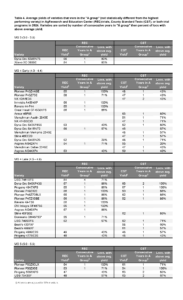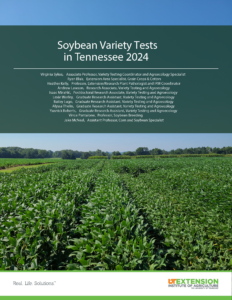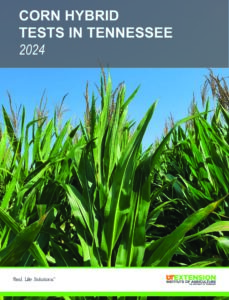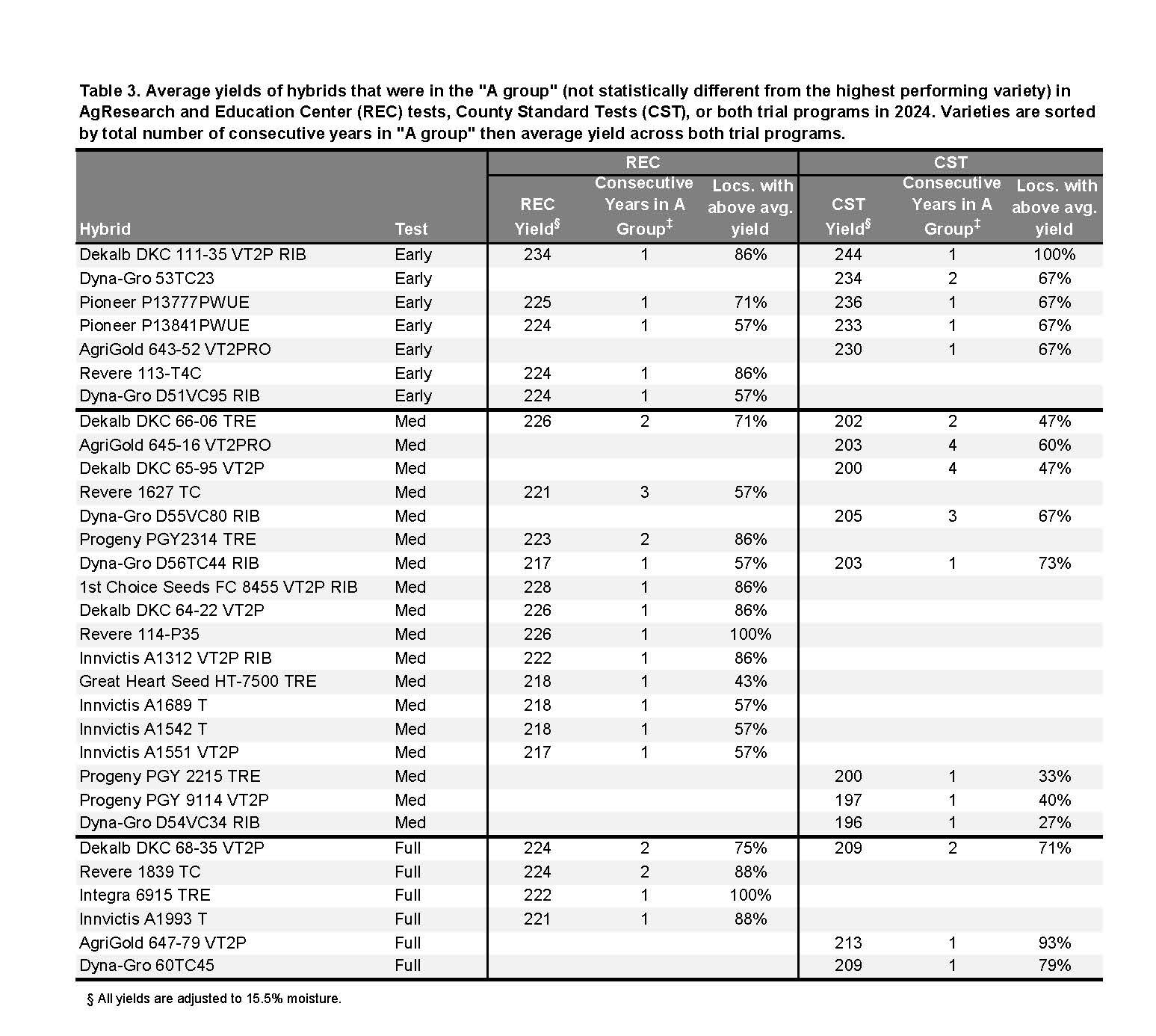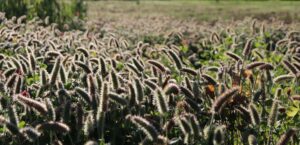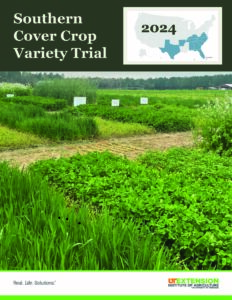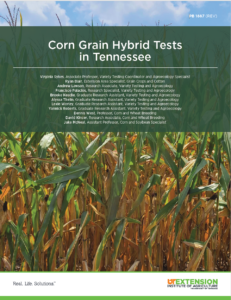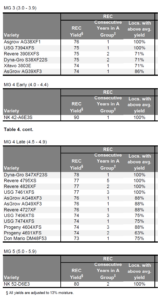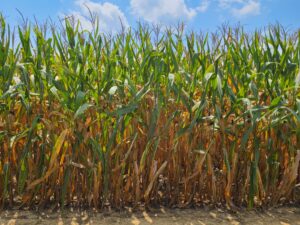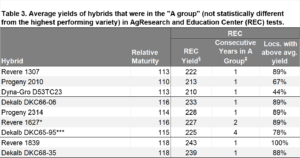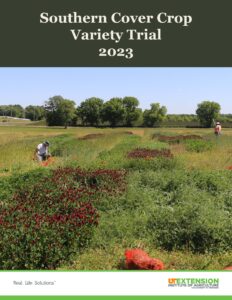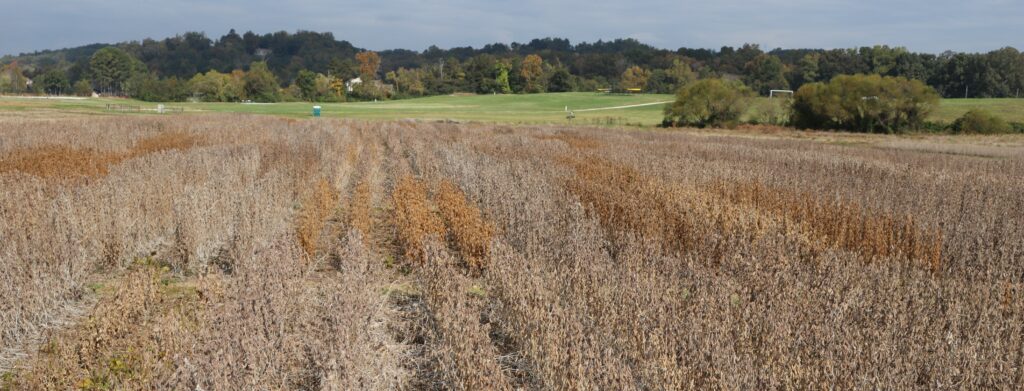Results from the 2024 Tennessee OVT, CST, and Disease soybean trials are now available (full report pdf, excel tables, excel appendix tables). The summary sheet below (Table 4 in the full report) lists varieties in the “A Group” (not statistically different from the highest yielding variety) in either one or both of the REC and CST trials. Listed for each variety are yield, number of years that variety has been in the A group and the percent of locations where that variety had above average yield (click the image to view larger size).
AgResearch and Education Center (REC): Eighty soybean varieties were evaluated at nine sites in small plot replicated trials . There were 8 varieties in MG3, 24 in MG4E , 40 in MG4L, and 8 in MG5 tests. Herbicide tolerance varied by entries with the majority falling into the XtendFlex (XF) or Enlist E3 categories, either with or without STS tolerance (61 entries).
County Standard Tests (CST): Forty-nine soybean varieties were evaluated in unreplicated strip trials. Trials included MG3 / MG4E XF (9 varieties at 5 locations), MG4E Enlist ( 26 varieties at 7 locations), and MG4L XF (14 varieties at 7 locations).
Disease Trials: County trials at three AgResearch and Education Center sites were evaluated for yield with and without a fungicide application. Yield as well as ratings for frogeye, target spot, brown spot, and soybean cyst nematode are reported.

